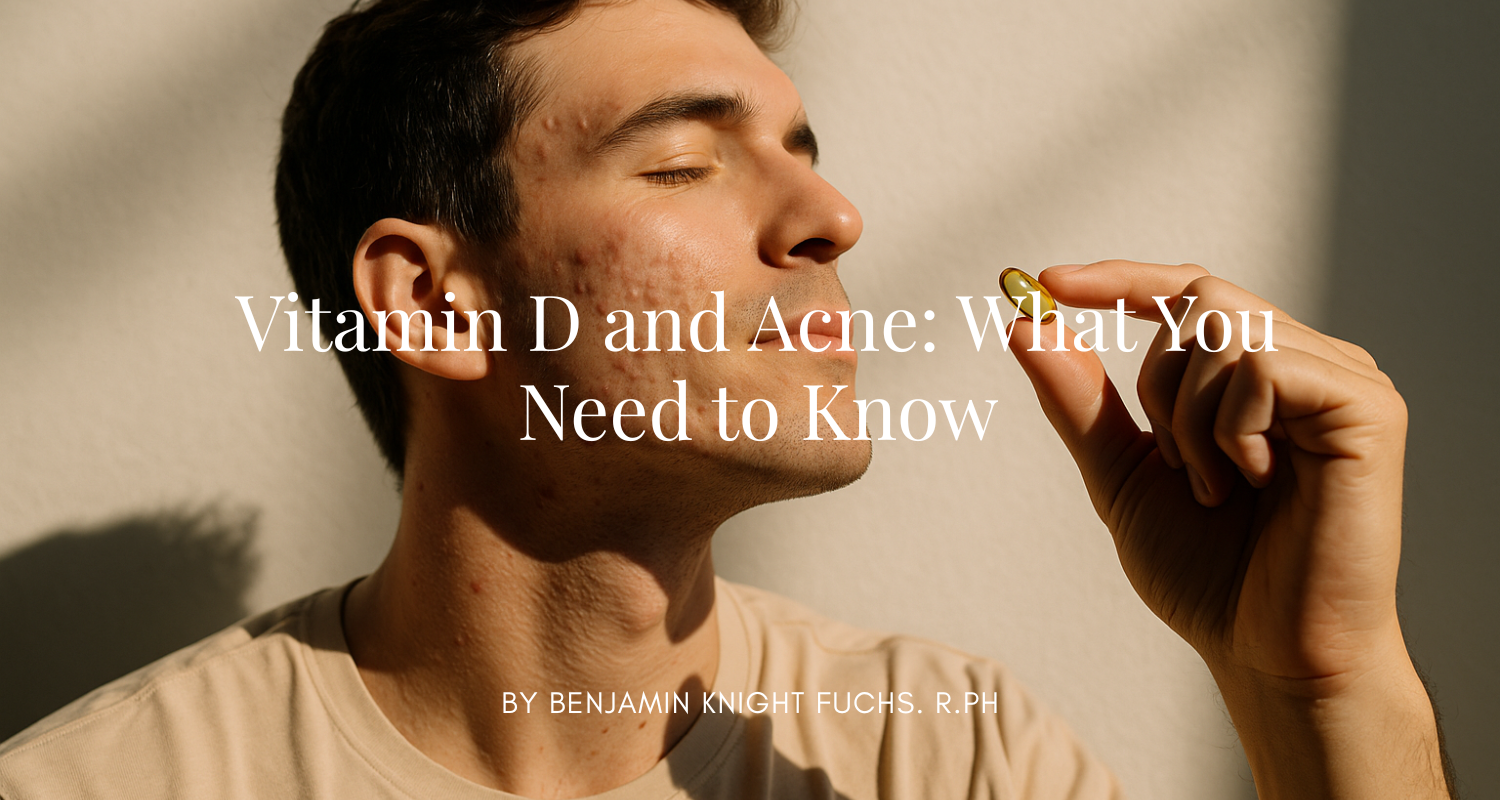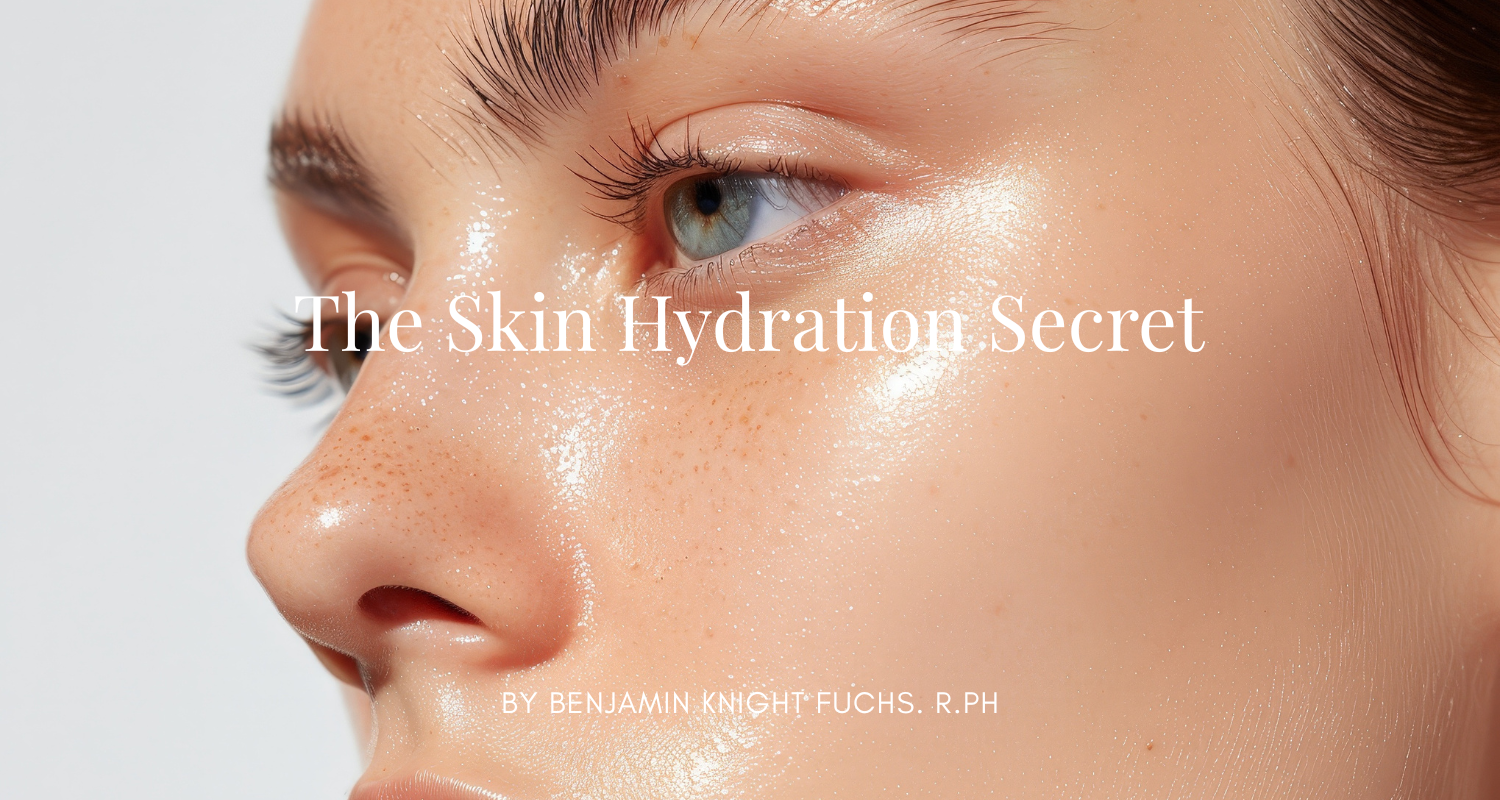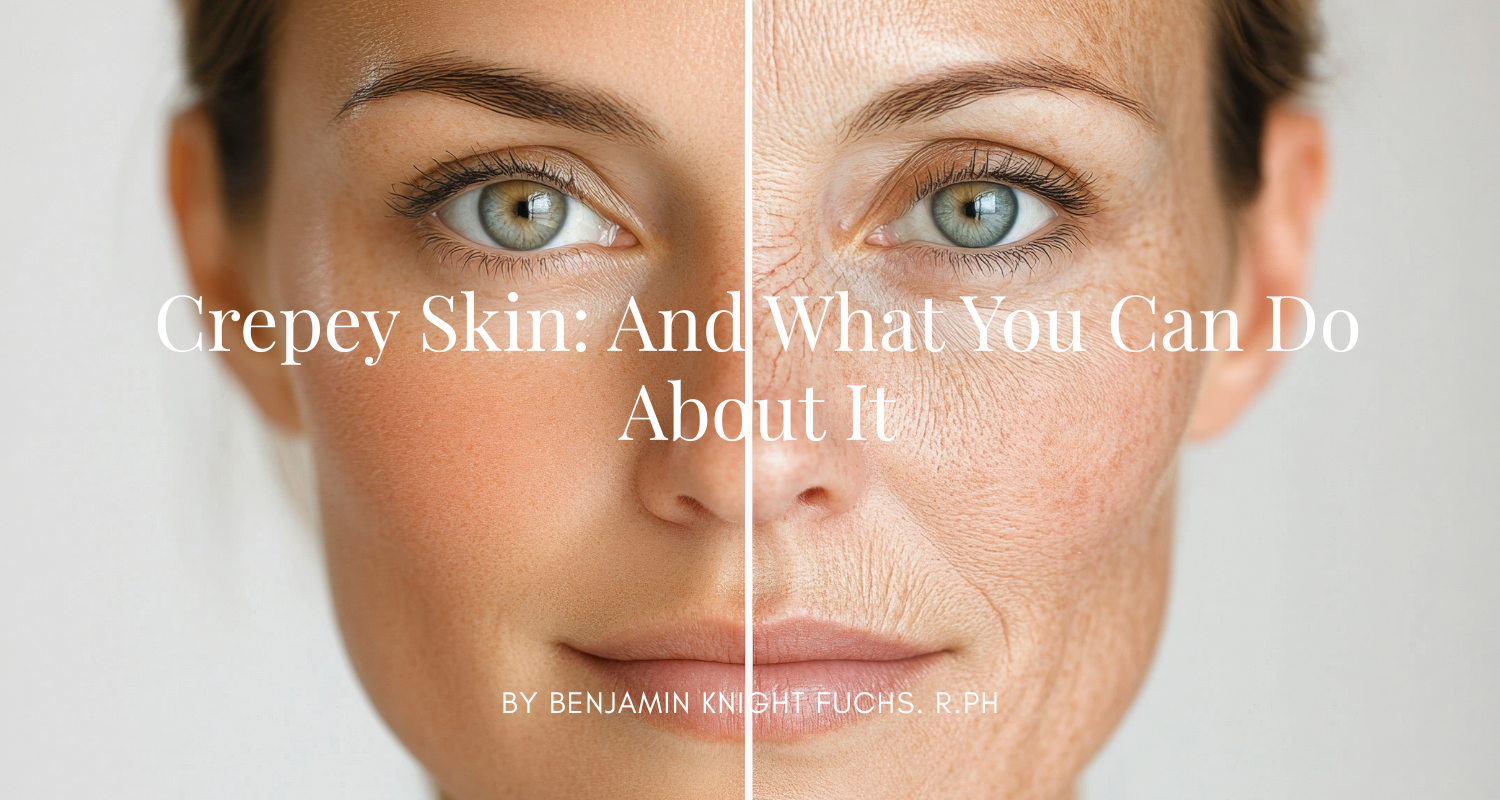
The Sunshine Vitamin & Acne
The Sunshine Vitamin & Acne
By Benjamin Knight Fuchs, R.Ph.
What Acne Really Means for Your Skin
Acne is one of the most common and frustrating skin issues people face. Beyond breakouts, it can take a toll on your confidence and overall well-being. While there are many topical products that help—especially those with retinol, Vitamin C, and exfoliating acids—there’s more to acne than meets the eye.
One often-overlooked factor? Your vitamin D levels. Known as the "sunshine vitamin", this nutrient plays a much bigger role in your skin health than most people realize.
Why Your Skin Loves Vitamin D
You’ve probably heard that vitamin D is good for your bones, but did you know it also supports your immune system, nervous system, and—yes—your skin?
Low levels of vitamin D are surprisingly common and can affect anyone. Deficiencies have been linked to everything from inflammation to chronic illness, and even certain skin conditions.
The Vitamin D–Acne Connection
If you deal with breakouts, you might also be dealing with low vitamin D. Research shows that people with acne tend to have lower levels of this vitamin. Why does that matter?
Because your skin doesn’t just absorb vitamin D—it actually produces it. Special cells in your skin called keratinocytescan turn sunlight into vitamin D, which helps with cell repair, immune function, and keeping your skin balanced. When vitamin D is low, these processes can get thrown off, and acne can worsen.
Calm the Inflammation
Acne is inflammation. That’s the root of redness, swelling, and those painful spots. Vitamin D has powerful anti-inflammatory effects, helping calm your skin from within. It works by reducing certain proteins in your body (called cytokines) that trigger inflammation.
By keeping those in check, vitamin D may help reduce how often and how severely you break out.
Can You Use Vitamin D on Your Skin?
Absolutely. Researchers are exploring how topical vitamin D could help reduce inflammatory acne. Some early studies show that it can lower the inflammatory response in the skin and make breakouts less severe and less frequent.
If you’ve tried everything else, this may be a great addition to your skincare routine.
Bonus Benefits for Breakout-Prone Skin
Vitamin D does more than fight inflammation. It also:
1. Reduces clogged pores: It helps your skin shed dead cells properly, so they don’t get stuck and form blackheads or whiteheads.
2. Balances oil: It regulates your sebaceous glands, helping prevent excess oil that can clog pores and cause breakouts.
How to Get More Vitamin D Naturally
Your body makes vitamin D when you’re exposed to UVB rays from the sun. But how much you need depends on your:
-
Skin tone (darker skin requires more exposure)
-
Location and season
-
Time of day
In general, exposing bare skin (without sunscreen) for 10–30 minutes, a few times a week, helps produce a healthy amount of vitamin D. Just be sure to avoid overexposure or sunburn.
What If You Don’t Get Much Sun?
Not getting enough sun? Consider using a UVB sunlamp—a safe, controlled way to mimic sunlight and help your body make vitamin D.
Benefits include:
-
More natural vitamin D
-
Calmer, less inflamed skin
-
Mood support and stress relief (which can also help your skin)
The Bottom Line
If you’re dealing with persistent breakouts, it might be time to look beyond your cleanser. Vitamin D plays a powerful role in your skin’s ability to fight inflammation, balance oil, and heal.
By making small changes—whether it's more time in the sun, a supplement, or adding vitamin D to your routine—you can support your skin from the inside out.
Your skin deserves to feel calm, balanced, and radiant. And vitamin D might be your new skincare ally.


